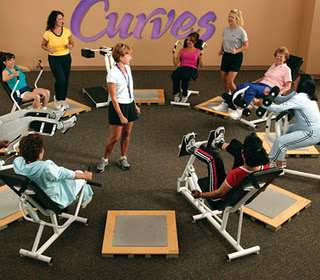Healthy Nutrition and Workplace

It is now commonly accepted that the health and wellbeing of employees make an essential contribution to business success. An increasing number of employers are interested in wellbeing of their employees and have recognized the relation between optimum nutritional intake and employees’ productivity. However when schedules are busy and work demands become hectic it is not always easy to make healthy eating a priority.
But why should a workplace be concerned about healthy eating? To begin with, when body and mind are fuelled with the right nutrients, employees feel more energized and ready to cope with stress during a busy working day. In addition, healthy eating in combination to active living may reduce risk for many serious health effects such as heart disease and some forms of cancer. Healthy eating reduces anxiety, elevates mood and improves self-esteem, parameters essential for a highly productive and successful business. It is therefore important to try and consume the right foods to benefit our health as well as our professional and work related areas.
However, keeping healthy at a workplace may sometimes be challenging, especially when many employees share the same workspace and work many hours of the day together. Limitless rounds of birthday celebrations of colleagues and mid-afternoon chocolate and cake breaks, make attempts to lose weight or eat healthy even more difficult. A new study, has found co-workers and an office environment, are to blame when it comes to breaking a diet. According to a different survey by Florida weight-loss clinic Medi-Weightloss, 29% of people on diets say colleagues pressure them to eat more, mock their diets or urge them to eat food that they know is not healthy. In addition, in most cases, employees on a busy day do not consume anything apart from coffee and other sugary beverages, and as a result they eat one large meal at the end of the day, high in fat and other non-healthy ingredients. Ready meals are quite popular in people who live a very busy lifestyle and thus they consume high caloric meals with low nutrition density. As a result, people end up decreasing their immune system stamina; they feel more fatigue, increase their weight and sometimes experience bad mood and depression. It is therefore essential to acknowledge the factors that may be sabotaging a healthy diet and lifestyle in general, and to try and find ways to avoid them and keep healthy.
A combination of good effort and willingness to eat healthy and feel strong and productive during a hard working day is enough to be successful. The “rules” below will help you to achieve making smart decisions when it comes to eating at work:
- Do not skip breakfast. After many hours without food it is essential to refuel your body in order to provide the necessary nutrients and energy to get you through the first part of the day. If you deprive your body of food in the morning you will feel tired and irritable and soon lack of concentration will affect the effectiveness of your work. Studies also show that people who skip breakfast are more likely to binge during the day and crave something sweet in order to boost their energy levels and thus increase their caloric intake. Some good examples of breakfast could be a sandwich with whole grain bread, light cheese, turkey ham and vegetables, or oatmeal cereal with fresh fruit.
- Try to eat every three hours. Eating regular times during the day and keeping the meals smaller that usual will keep your metabolism working and prevent the feeling of starvation. This can help stabilize your blood glucose levels and thus control hunger and weigh management.
- Plan ahead and get organized with healthy nutritious snacks. Try to always have at work snacks that will give you energy and keep you fuelled in between meals. If you plan to take healthy snacks with you it will keep you from being tempted to eat something unhealthy that will appear at work. Some smart choices are fresh or dried fruit, unsalted nuts like almonds and low fat yogurt.
- Choose smart! In case you must eat out with work colleagues try to choose meals low in fat and rich in fiber like vegetables and salads. Fiber will increase satiety and you will feel full without consuming many calories. Some good examples could be grilled chicken/pork chop/ fish with small portion of rice or baked potatoes and salad. Also, whole wheat pasta with vegetables or seafood could be a nutritious choice.
- Water is your friend. Drinking water during the day will keep you hydrated, fresh and productive. It has also been found that when most of the times we feel like we are hungry or need something to eat, we are thirsty really! So next time you feel like craving to eat something, drink a large glass of water and see if you still need to eat. This will save you from consuming excess calories on a busy day.
- Take small breaks to refuel your mind. If you spend many hours sitting at your office without moving then you are probably experiencing fatigue and dizziness when work becomes hectic. Try to stand up and do some stretching, walk outside for some fresh air and refresh your mind. Also, devote time and exercise daily! Sedentary lifestyle is common for busy people and carries numerous negative health effects both physically as well as mentally.
Eating healthy is important and aids in achieving personal as well as professional goals. It helps employees improve their work efficacy and their wellbeing and employers should take great consideration in adding or improving good quality of nutrition availability at workplace. At the personal level however, all it takes is to set the goals and put daily effort into achieving them. Follow small steps at a time and do not get discouraged if you are not able to keep your choices healthy to the maximum. Effort and consistency will make the difference sooner or later. Remember your body is a gift, and It is never too late to start making changes.


Δρ. Άννα Χριστίνα Κονή







